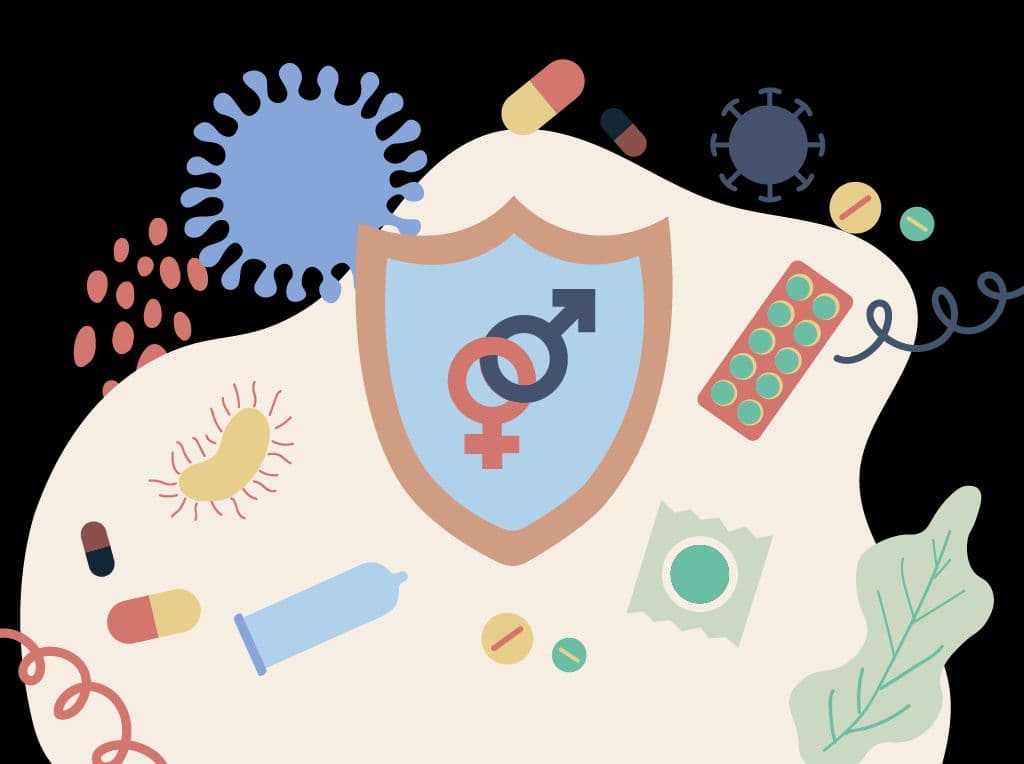Let’s understand what painful sex is
Painful intercourse is medically termed dyspareunia and can be defined as constant and severe pain in the genital area just before, during or after penetrative vaginal intercourse. While having sex, if you experience pain in your pelvic area that makes sex unbearable, you may be struggling with dyspareunia.
Depending on the cause, dyspareunia can be an extremely painful condition and could occur due to both physical and psychological reasons. Different women tend to experience this pain at different stages of intercourse. While some might start feeling the discomfort right before penetration happens, some might experience throbbing pain during penetration, and for some, the pain might begin right after they are done with sex. Each condition has its own causes and possible diagnosis.
Pain at entry
The pain that is experienced right before the penetration begins, can be classified as pain at entry. Sex is a natural process and its success is determined only by the complete involvement of both, the mind and the body. Some of the factors that cause pain at this stage are:
- Lack of lubrication: During sex, both external as well internal lubrication is a must. The internal lubrication is caused due to higher estrogen levels – which are a result of good foreplay. A penetration that lacks arousal, can be a forceful one and cause pain. Sexual desire and arousal is also affected by certain medications and in women who are approaching menopause and/or are breastfeeding.
- Injury: Genital/perineal surgeries, complicated childbirth or trauma from an accident can also affect your pelvic area. This may make penetration painful for you in the initial stages and can also build apprehension for penetration.
- Infections or Inflammation: If your genitalia or urinary tract have any kind of skin disorder or infections, there are high possibilities of irritation and discomfort being caused by skin contact right before sex.
- Vaginismus: In this condition, involuntary muscle spasm affects vaginal intercourse and makes penetration painful. Vaginal walls experience this muscular spasm and make penetration controlled and difficult.
- Congenital conditions: Conditions that prevail from birth like a fully formed vagina (vaginal agenesis) or a membrane that blocks the vaginal opening (imperforate hymen) can also cause painful sex.

Pain during penetration
This pain is also termed as ‘deep pain’ and occurs with deep penetration. Once the penis enters the vagina, the friction created and the presence of the penis in the vagina itself can cause severe pain. With no or insufficient lubrication, the unaroused or dry vagina can be very unwelcoming to the penis and this can cause painful thrusting. Some other causes for this pain can be:
- Underlying illnesses and conditions: Medical abnormalities in the pelvic area like PCOS, endometriosis, fibroids, pelvic inflammatory diseases, retroverted uterus, irritable bowel syndrome or haemorrhoids can also cause pain during deep penetration. Irregular or painful periods and belly pain on non-bleeding days of your cycle may be some signs of such conditions.
- Medical treatments or surgeries: Any form of pelvic surgery, including removal of the uterus (hysterectomy) and several other high-intensity medical treatments, can also cause pain during penetration.
- STIs: Diagnosis of sexually transmitted infections can often make deep penetration painful. Some other symptoms you may experience are spotting after sex, foul-smelling vaginal discharge or spotting intermittently in your menstrual cycle. Safe sex practices are extremely important beyond contraception and also in the prevention of poor sexual and physical health. Get tested if you feel you have symptoms that suggest an STI.
Pain after sex
Usually, this pain is associated with more emotional attributes than physical. If the mind is not at peace, the body suffers. And sex is an activity that involves from the brain to toes, your entire body. So when the mind and body are not in sync, one can have a painful sexual experience. Other cause causes for pain after sex can be:
- Psychological: Anxiety, depression, loneliness increases after sex, if at all the experience wasn’t pleasing enough. This can cause emotional imbalances, further affecting one’s overall body well-being at that moment.
- Endurance: Sex burns a lot of calories and is also a workout for the body. The full-body exertion caused by sex can lead up to muscular aches throughout the body, especially in the lower body, causing painful experience.
- History of abuse: If you have ever experienced sexual or physical abuse, it may make sexual intercourse an extremely painful process. In this case, it's best if mental healthcare providers are involved in your journey too.
Some signs and symptoms that you need to watch out for
Consult a healthcare provider if you are experiencing any of the following symptoms. Not only will they help in addressing the cause of your sexual pain, but also help you diagnose some major concerns in your reproductive or sexual health.
- Foul-smelling / bloody vaginal discharge post intercourse
- Change in body temperature and lower/no pain resistance
- Copious amounts of vaginal discharge
- Burning or stinging sensation whilst you pee
- Constant burning and aching sensation in the genitalia
- Pain lasting for longer hours post intercourse
- Fear of having sex
Some ways painful sex can be managed
- In the first order of business, your healthcare provider will work towards treating the disorders that may be the fastest / easiest to treat. It includes any infections such as vaginal infections, UTIs or STIs. These are managed with a combination of antibiotics usually for both partners.
- In most cases, once your healthcare provider has helped you address the physical causes, the treatments for painful sex are largely based on therapy, relaxation and behavioural modification.
- In the postpartum period, mothers need to be more patient with their bodies and allow a good period of 6-8 weeks for their mind and body, both to be ready.
- In case the pain is due to vaginal dryness, focus on spending more time on foreplay to increase the natural lubrication. You may also want to try using external water-based lubricants for a better experience. Talking to your partner about the pain can also help you in understanding and coping with it better.
- A latex allergy could also be the reason that you are experiencing pain and burning sensation during sex. Consider opting for non-latex condoms.
Disclaimer: This information is educational and should not be construed as medical advice. Please consult your doctor before making any dietary changes or adding supplements.
Proactive For Her is a digital clinic for women, offering accessible, personalised, and confidential healthcare solutions. We offer out-patient care, diagnostic services and programs for various health concerns of Indian women, across their lifetime - from puberty to pregnancy to menopause.

